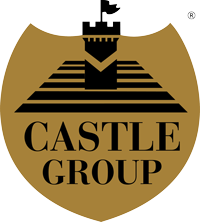Identifying and Mitigating Risks: A Guide for Boards
February 12, 2025

Condominium and Homeowner Association governance requires a deep understanding of laws, proactive management, and strategic planning to ensure the safety and success of the community. Key considerations include adhering to structural integrity reserve studies (SIRS), managing liability and legal risks, and preparing for emergencies. Here’s what every Association board should know:
Structural Integrity Reserve Study (SIRS) – A Critical Requirement for Condo Towers
SIRS applies specifically to condominium towers and was implemented following the tragic collapse of building in Surfside. This law addresses years of deferred maintenance and emphasizes the need for proper planning and budgeting to maintain building integrity.
- Budgeting and Scheduling: Boards must use the reserve study’s calculated numbers to create accurate budgets and timelines for necessary projects. Partnering with management ensures that maintenance projects are prioritized to keep the building safe and functional.
- A Living Structure: Think of your condominium as a living, breathing structure that requires regular care. Similar to how vehicles need oil changes, new brakes, and tire replacements, buildings have critical components like roofs, stucco, and piping that wear out and require timely replacement.
By taking proactive measures outlined in SIRS, boards can ensure their buildings remain structurally sound and avoid the devastating consequences of neglect.
Managing Liability and Legal Risks
One of the board’s most significant responsibilities is reducing liability and managing legal risks. Partnering with a knowledgeable attorney is essential for protecting the association.
- Legal Guidance: Your association attorney is the a vital partner. They should be consulted on major decisions, including reviewing all contracts before execution. This step ensures the association’s interests are protected.
- Orientation Meetings: Attorneys should attend board orientation sessions alongside management to outline the roles and responsibilities of board members. This ensures everyone understands their duties and mitigates risks associated with governance.
Prioritizing legal oversight minimizes exposure to potential disputes and ensures the board’s decisions align with state laws and community needs.
Emergency Preparedness – Failing to Plan is Planning to Fail
Effective emergency preparedness is a cornerstone of community management. Storms and other emergencies can significantly impact property assets without thorough planning.
- Pre-Storm Planning: The board should collaborate with management to secure the property before a storm. Preparations should include planning sessions early in the season. For example, Castle Group begins hurricane preparation in May, allowing ample time to purchase materials, conduct dry runs, communicate to residents (some of which will be new to the community) and train staff.
- Asset Protection: The board’s primary responsibility is to maintain the community’s assets. Proper planning and communication with members ensure emergency readiness, safeguarding the property and its residents.
SIRS compliance, liability management, and emergency preparedness are vital pillars of effective association governance. By partnering with the right management partner and legal experts and adopting proactive strategies, boards can fulfill their responsibilities while fostering a safe, well-maintained community.
Tags:

